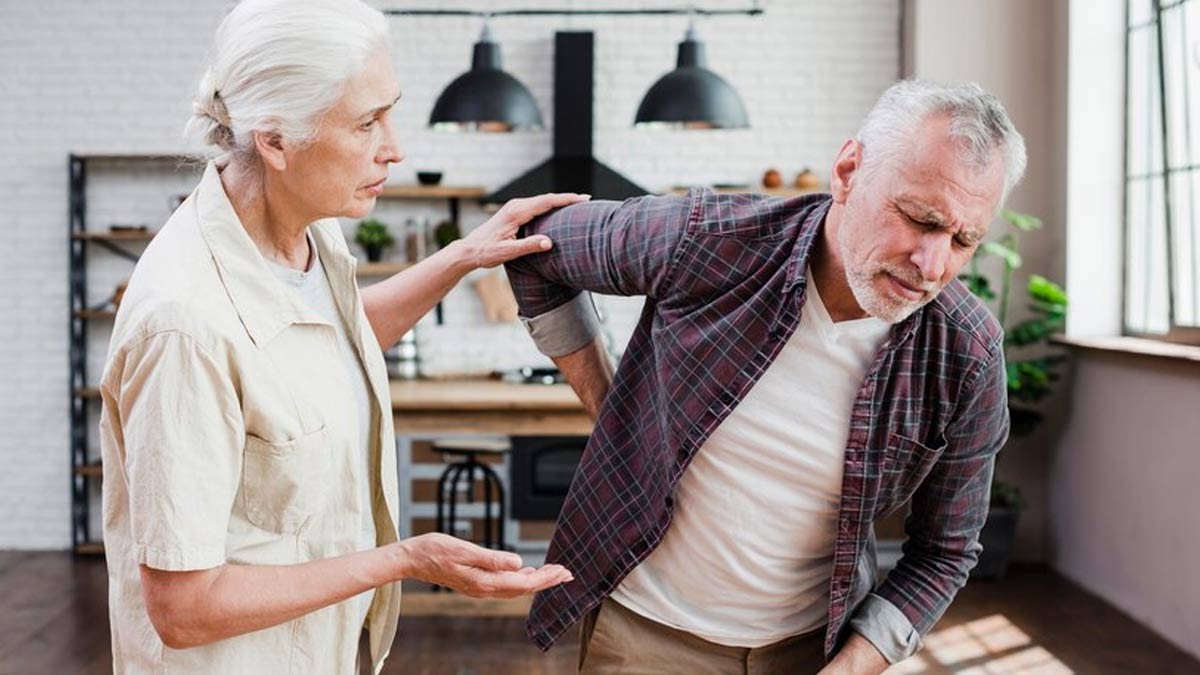
Older adults, particularly people aged 65 or older, should be more alert about their health. This is because they’re more at risk of developing certain diseases, like heart problems, diabetes, and cancer, than younger people. Additionally, they can sustain injuries that can be difficult to treat or may have a longer recovery period.
Table of Content:-
Hip injuries or fractures are the most common among older people, especially after a fall. The US Centers for Disease Control and Prevention (CDC) suggest that more than 95% of hip fractures are caused by falling, usually by falling sideways. This is more prominent in older women.
Also Read: Osteoarthritis Of The Hips: Expert Explains Its Types, Symptoms, And Treatment
Why Hip Injury In Older Adults Are Concerning

In an interaction with the OnlyMyHealth team, Dr Raj Kumar, Director and Head - Department of Orthopaedics and Joint Replacement at Ayushman Hospital and Health Services in Dwarka, New Delhi, says, "Hip injuries in older adults are a matter of concern due to their potential to impact mobility and independence significantly. Fractures or dislocations in the hip can lead to prolonged pain, reduced functionality, and an increased risk of complications like blood clots or infections."
But the challenges do not stop there. In older adults, the recovery process may be more challenging, requiring extensive rehabilitation, which could potentially affect their overall quality of life.
In certain cases, research has found that mental health problems like delirium and depression are common in elderly people who suffer hip fractures from falls.
These mental problems can make it harder for them to recover and increase their risk of death.

Moreover, there's an increased susceptibility to infections, particularly in surgical cases, and potential complications from prolonged immobility, such as blood clots or pressure sores. Overall, comprehensive care and rehabilitation are crucial to minimise these risks and facilitate a smoother recovery process for elderly patients, says Dr Kumar.
Therefore, the doctor emphasises addressing hip injuries in older persons, which require early diagnosis, appropriate treatment, and thorough rehabilitation to maximise the results and reduce long-term effects.
Preventive Measures

When it comes to preventing hip injuries in older adults, certain strategies may prove effective. These include:
Engaging in regular exercise may help strengthen muscles and improve balance.
Adequate nutrition with calcium and vitamin D is needed to support bone health and reduce fracture risks. Creating a safe home environment by removing hazards and installing grab bars to prevent accidents.
Regular check-ups and bone density screenings with healthcare professionals enable early detection and intervention.
If you’re wondering what type of exercises older adults can indulge in, Dr Kumar recommends low-impact exercises, which offer gentle yet effective ways to stay fit.
This includes walking, which requires no equipment; swimming, which provides a full-body workout with minimal strain on joints; and yoga, which promotes flexibility, balance, and relaxation, enhancing overall well-being without high impact on the body.
According to the doctor, integrating these activities into your daily routine can foster long-term health benefits while being gentle on your joints and muscles.
Also watch this video
How we keep this article up to date:
We work with experts and keep a close eye on the latest in health and wellness. Whenever there is a new research or helpful information, we update our articles with accurate and useful advice.
Current Version